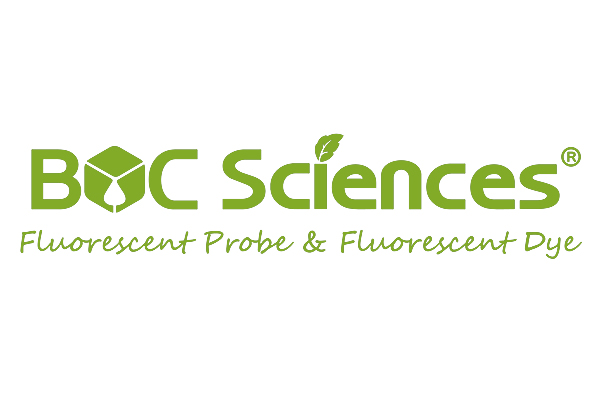
DBCO-NHS ester | CAS 1353016-71-3
| Catalog Number | R01-0286 |
| Category | Cycloalkyne Dyes (DBCO) |
| Molecular Formula | C23H18N2O5 |
| Molecular Weight | 402.40 |
| Catalog Number | Size | Price | Quantity |
|---|---|---|---|
| R01-0286 | 1 g | $1344 |
* Please be kindly noted products are not for therapeutic use. We do not sell to patients.
Product Introduction
DBCO-NHS ester is a copper-free click chemistry linker for ADC construction. It reacts with amines and azides, enabling efficient bioorthogonal conjugation. Widely used in antibody-drug conjugates and protein labeling, it provides high stability and fast reaction under physiological conditions.
Chemical Information
Product Specification
Application
| Synonyms | DBCO-NHS;N-Succinimidyl 4-[(5-Aza-3,4:7,8-dibenzocyclooct-1-yne)-5-yl]-4-oxobutyrate |
| Purity | > 99.0 % |
| IUPAC Name | |
| Canonical SMILES | C1CC(=O)N(C1=O)OC(=O)CCC(=O)N2CC3=CC=CC=C3C#CC4=CC=CC=C42 |
| InChI | InChI=1S/C23H18N2O5/c26-20(13-14-23(29)30-25-21(27)11-12-22(25)28)24-15-18-7-2-1-5-16(18)9-10-17-6-3-4-8-19(17)24/h1-8H,11-15H2 |
| InChIKey | XCEBOJWFQSQZKR-UHFFFAOYSA-N |
| Solubility | DMSO: 100 mg/ml (24851 mm, need ultrasonic) |
| Appearance | White powder |
| LogP | 2.32330 |
| Storage | Keep in freezer under -20 °C upon receipt of the product. |
DBCO-NHS ester, a versatile chemical reagent, finds widespread application in bioconjugation and click chemistry. Here are four key applications of DBCO-NHS ester:
Antibody-Drug Conjugates (ADCs): At the forefront of targeted cancer therapy, DBCO-NHS ester plays a pivotal role in synthesizing antibody-drug conjugates. By facilitating the attachment of cytotoxic drugs to antibodies, it ensures precise delivery to cancer cells. This targeted strategy maximizes therapeutic effectiveness while minimizing unintended impacts on non-cancerous cells.
Protein Labeling: A cornerstone of imaging and diagnostics, DBCO-NHS ester is instrumental in labeling proteins with fluorescent dyes. Through its interaction with primary amines in proteins, it enables the attachment of various labels such as fluorophores and biotin. This process is essential for studying protein interactions, localizations, and functions using techniques like fluorescence microscopy, providing insights into cellular dynamics.
Surface Modification: In the realm of biomaterials, DBCO-NHS ester plays a crucial role in surface modification to improve biocompatibility and functionality. By enabling the attachment of biologically active molecules like peptides or growth factors to surfaces, it enhances the utility of materials. This application finds particular significance in the development of biomedical devices, tissue engineering scaffolds, and biosensors, advancing the field of medical technology.
Bioconjugation: An indispensable tool in bioorthogonal chemistry, DBCO-NHS ester is widely utilized for site-specific conjugation of biomolecules. Its efficient reaction with azide-bearing molecules forms stable triazole linkages without disrupting biological systems. This unique capability is harnessed in constructing intricate bioconjugates for both research purposes and therapeutic interventions, showcasing the versatility and precision of bioconjugation techniques.
Recommended Services
Recommended Articles

- Hoechst Dyes: Definition, Structure, Mechanism and Applications
- Mastering the Spectrum: A Comprehensive Guide to Cy3 and Cy5 Dyes
- Fluorescent Probes: Definition, Structure, Types and Application
- Fluorescent Dyes: Definition, Mechanism, Types and Application
- Coumarin Dyes: Definition, Structure, Benefits, Synthesis and Uses
- Unlocking the Power of Fluorescence Imaging: A Comprehensive Guide
- Cell Imaging: Definitions, Systems, Protocols, Dyes, and Applications
- Lipid Staining: Definition, Principles, Methods, Dyes, and Uses
- Flow Cytometry: Definition, Principles, Protocols, Dyes, and Uses
- Nucleic Acid Staining: Definition, Principles, Dyes, Procedures, and Uses
Recommended Products
Online Inquiry








